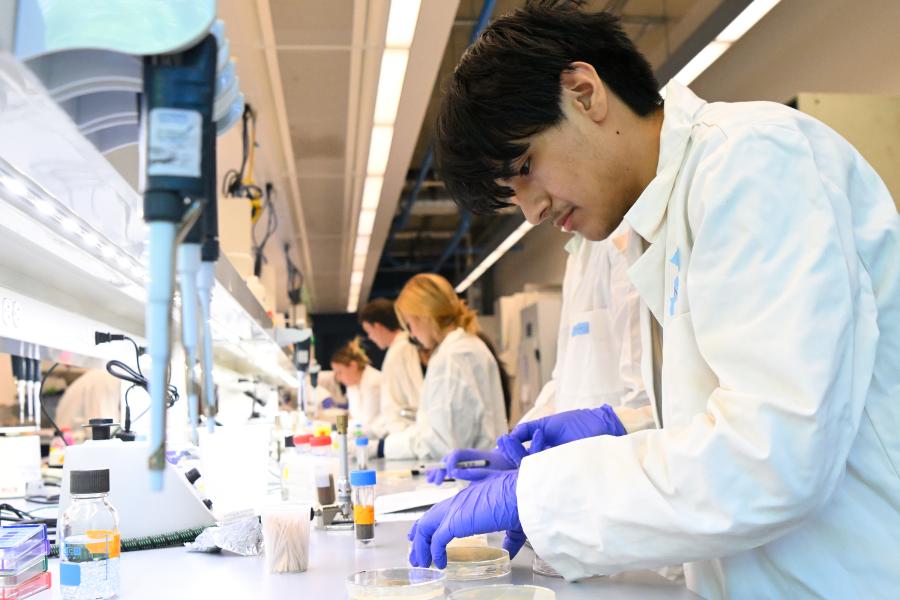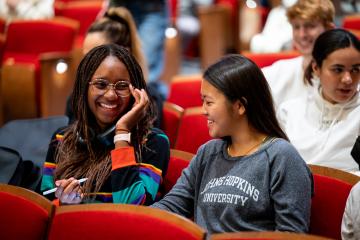Something strange and wonderful happened in William Egginton's first-year seminar last fall: His students wouldn't leave when it was over.
The course was Poets, Physicists, Philosophers, and the Ultimate Nature of Reality; Egginton has taught similarly themed courses for several years, including over Zoom after COVID emptied campus. This past fall, the seminar—offering a globetrotting, centuries-spanning look at how the human mind interacts with the physical world—was in-person and mask-optional for the first time since spring 2020.
"This was a two-and-a-half-hour class, and at the end, no one would leave," says Egginton, Decker Professor in the Humanities at Johns Hopkins University and director of the Alexander Grass Humanities Institute. "I'm sitting at one end of a long conference table, and 12 students around me stand up, but they're all still talking."
For Egginton, the takeaway was simple: It's good to be back.
"I missed it big time," he says. "The dynamism, the ability to hold attention, the intangibles that come out of a seminar setting. Perhaps the most important thing is the emergent property: out of a combination of minds sitting around a table, something greater than constituent parts comes out."
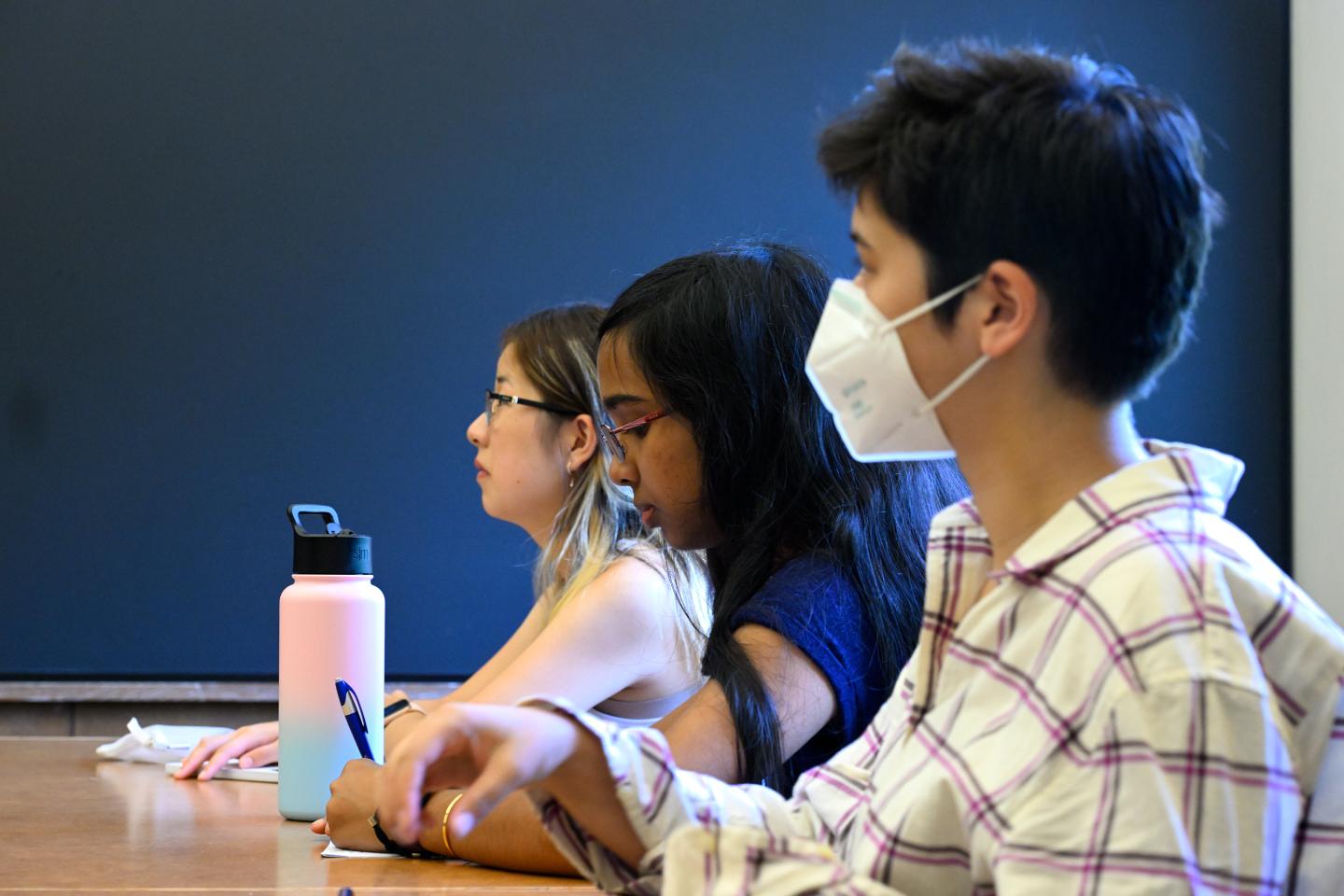
Image credit: Will Kirk / Johns Hopkins University
Normal has never been so exciting, or so Johns Hopkins students said when asked last fall what it was like to be back on campus sans COVID restrictions. The same seems to be true for the faculty and student-facing staff we spoke with this spring.
While Zoom might offer a pale substitute for the give-and-take of an in-person humanities class, for hands-on lab classes it's, well, not much of a substitute at all. Just ask Eric Hill, senior lecturer in the chemistry department whose various lab classes, including organic chemistry, teach specific equipment techniques and chemical reactions.
"Doing that virtually is all but impossible," Hill says. "I would record things and the students would watch it, and then we'd talk about it, but you really need to do something with your own hands. There's no replacement for that. And during the pandemic, they couldn't.
"Being back in person, oh my goodness—it absolutely makes you appreciate how much more effective teaching is," Hill adds.
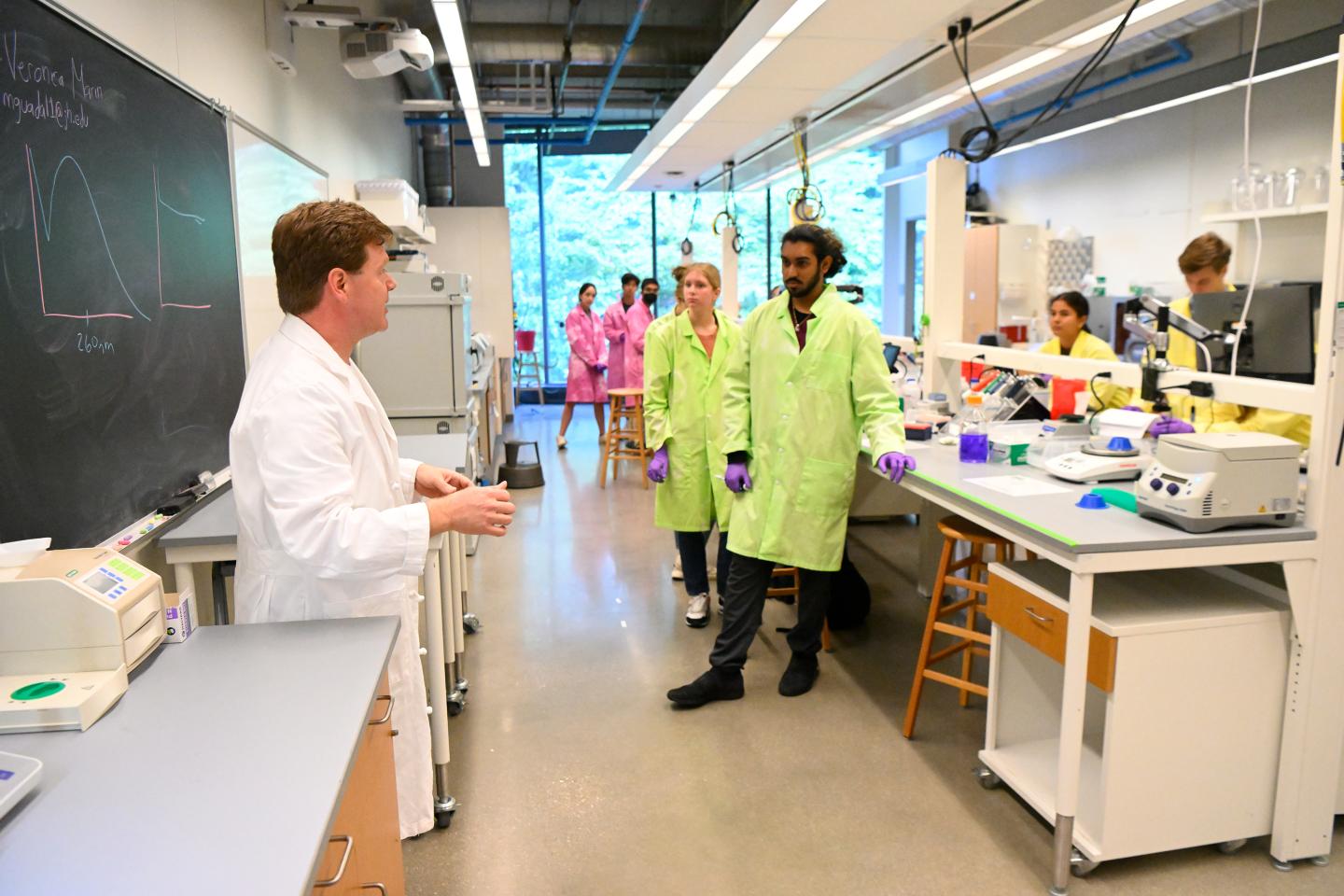
Image credit: Will Kirk / Johns Hopkins University
Students are also once again gathering regularly at campus dining facilities.
'"It's a good sight to see a full dining room—people communicating and having that community connection," says senior foodservice manager Myke Williams. "Dining is unique in that it's the only thing that everyone on campus has in common. Everyone eats, right? So with that big piece back bringing the university together it's feeling like a campus again."
Williams joined Hopkins in early 2020—one month before COVID upended campus life and the university transitioned to remote learning. His job went from making sure people were fed to making sure people were safe. The Homewood campus was never fully deserted, as there were some residential students—especially those from overseas—who couldn't go home. Williams and his team kept food operations open for them. And when any of them tested positive for COVID, three meals a day were delivered to them.
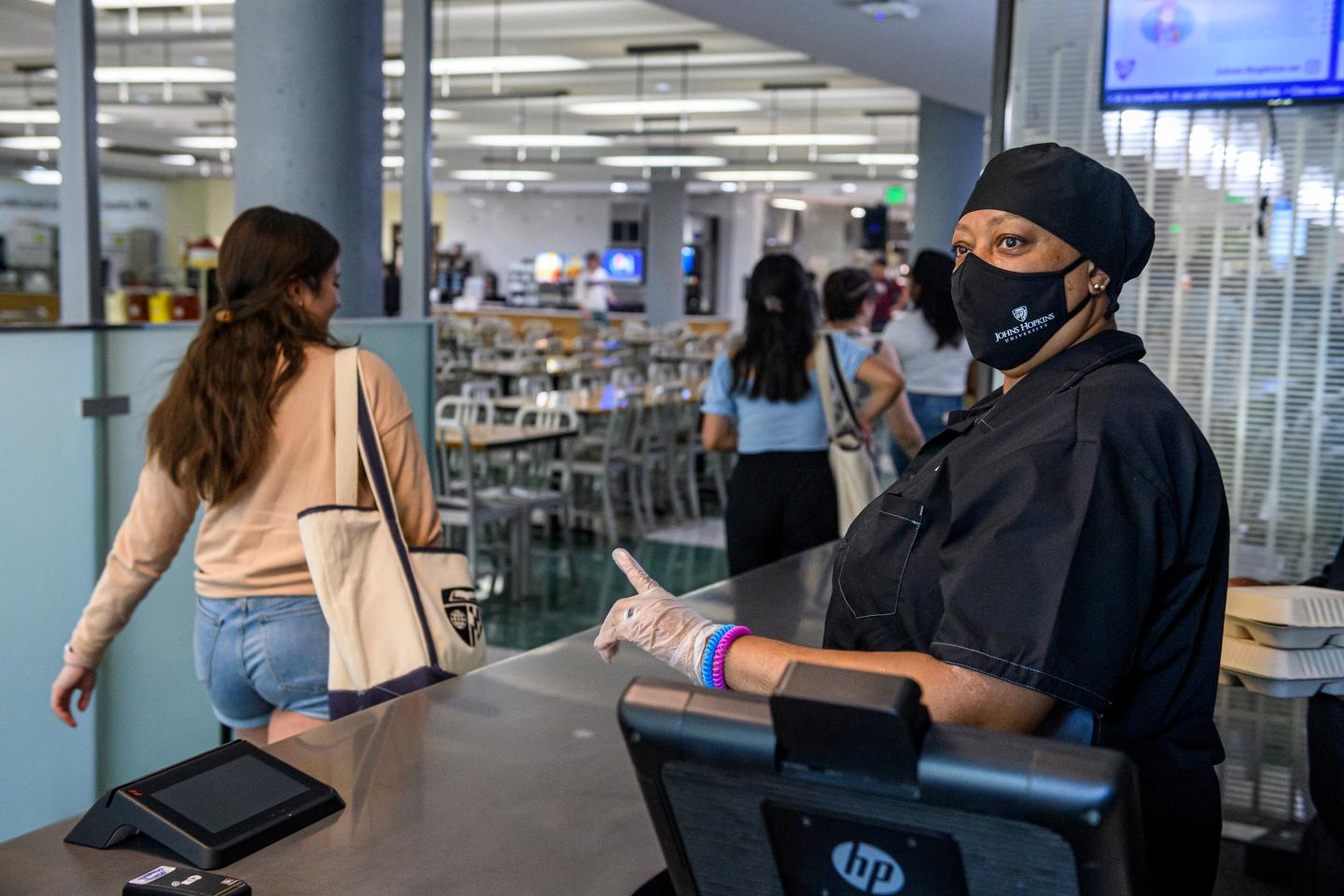
Image credit: Will Kirk / Johns Hopkins University
For Williams, it sometimes meant long days and delivering meals to isolated students in his own vehicle. But one thought kept him going: If it was his son or daughter stranded away from home, he'd surely want someone looking after them. "For a student who might not have anything, it was my responsibility to make sure they eat," Williams says. "That was the only thing in my head."
Campus library spaces are also bustling again, and that's just the way librarian Heidi Herr likes it.
"I'm an extrovert," she says. "I like being around other people and talking to them and sharing my weirdness with others and learning about other people's eccentricities. I missed those types of interactions. It is wonderful to see academic and social life returning to the library."
One of her many tasks as a librarian for English, Philosophy, and Special Collections Student Engagement is organizing the annual Edible Book Festival, a campus tradition since 2014 wherein students, faculty, and staff create desserts themed around authors, books, or characters.
"It's incredibly exciting and also vaguely terrifying because I realized that the event hasn't happened in person in three years," Herr says a few days before the event will fill the Glass Pavilion. (Postscript: The 2023 Edible Books Festival was a complete success.)
"In this new normal, we just need to take pleasure and enjoyment in gathering together," Herr adds. "Even if it's something as silly as looking at an edible book."

Image caption: In-person tours, offered year-round, give prospective students and their families a first-hand look at the Homewood campus.
Image credit: Will Kirk / Johns Hopkins University
Campus tours have also returned in full, an important tool for prospective students determining which colleges they want to apply to and attend. Though Hopkins has long offered virtual tour options—an alternative that was especially valuable during the height of the pandemic, when in-person tours weren't available—there's no substitute for experiencing the Homewood campus in person, says Victoria Dawes, senior assistant director of on-campus programs.
"There's something important about being able to see a college campus when you're trying to figure out where to call home for the next four years," Dawes says. "How do you really portray what the vibe is like, what the culture is like, and what it just feels like?"
Some of that all-important campus appeal can be credited to groundskeeping manager Randy Widomski and his crew of more than a dozen landscapers, who have been busy keeping the Homewood campus looking good from the ground up. Widomski and his team look after the lawns, flowerbeds, and trees, work that didn't stop in the midst of the pandemic.
On one hand, Widomski says, not having students traversing the brick paths made moving and setting up equipment and supplies a little easier.
"But then we didn't have anybody else to enjoy the grounds with other than ourselves," he says. "There was no one to turn to and say 'I think this looks great. What do you think?' The students are our bread and butter; we do it all for them."




